I continue to be excited, uplifted, exhilarated, even, by Rainer Maria Rilke’s Book of Hours – a collection of poetry that remains central to the journey of soul-making despite being written more then a hundred years ago. These poems speak to me in a way that no other words have ever done. I can sit with any one of these poems for days, weeks, months and they continue to inspire. A lot of them have turned into songs. That happened yesterday and I was awe struck by the ease with which it happened. It was like the song was playing me rather than the other way around. This is something artists have related throughout the ages (here’s a really good talk about that very topic), yet it is such a mysterious process that no one can fully explain it. It seems like an explanation would run counter to its essence and I fear that the very attempt may take away from the experience. But it was such an overwhelming and joyful occasion that the feeling still pulsates through my body and mind, and I cannot help sharing it.
The process must have to do with self-abandonment. Letting go of the world, surrendering to it, accepting it and re-entering it in a loving embrace. Surrender, embrace, and devotion. Devotion. A slightly awkward word but nonetheless one that feels appropriate. Devotion, in the sense of self-abandonment, implies trust in the world. That it can hold you once you let go. Needles to say, I am not speaking of devotion to a religious idol but devotion to the inherent beauty of the world. Devotion. An affectionate acceptance that the world is perfect despite our inability to hold its overwhelming complexity which often looks very different to beauty. I had the pleasure of meeting a very skilled appreciator of beauty recently. She said something about finding beauty in the world, no matter whether our experience is tainted by sadness or darkness, that has stuck with me:
“Some people find the falling leaves a sad thing, the end of the lighter pleasures of summer, the beginning of a long dark time. But I see in the leaves an outpouring of the infinitely complex web of the world, an inevitable result of one of its many processes. A lavish show of beauty before the starkness of winter sets in. All this treasure below my feet, above my head and swirling all around me, a wealth that I cannot put into a bank, nor invest in stocks and shares. I cannot hoard it, and if I tried, the wind would disperse it quickly, as is its right. It cannot be transposed into binary code on a computer screen and transferred between countries in fractures of a second. I cannot use it to buy anything. I cannot lose it, for I don’t own it. And yet it is mine, on this November evening in London, all that beauty mine to behold right here in my heart. In a short while, when the leaves will have all gone finally and the bare skeletons of the trees reach their bones towards the winter skies, then I’m reminded that underneath, that’s what we are too, bare skeletons to be revealed again one day.”
That kind of describes what I mean by devotion. I cannot lose it, for I don’t own it. Rilke himself explores this throughout the poems “Let no place in me hold itself closed, / for where I am closed, I am false”. Surrender, embrace, devotion. On the other side of that, or rather inside that, resides a joy which it is imperative that we connect with in these times of collapse. We can learn a lot from the people who engage in the creative process if we want to learn how to deal with living in a time where being human comes with the accumulated weight of the destruction that industrialisation has wrecked on the world.
Perhaps it’s the release from this weight that came from the self-abandonment when writing this song that so exhilarated me. Here’s the poem:
I’m too alone in the world, yet not alone enough
to make each hour holy.
I’m too small in the world, yet not small enough
to be simply in your presence, like a thing–
just as it is.
I want to know my own will
and to move with it.
And I want, in the hushed moments
when the nameless draws near,
to be among the wise ones–
or alone.
I want to mirror your immensity.
I want never to be too weak or too old
to bear the heavy, lurching image of you.
I want to unfold.
Let no place in me hold itself closed,
for where I am closed, I am false.
I want to stay clear in your sight.
I would describe myself
like a landscape I’ve studied
at length, in detail;
like a word I’m coming to understand;
like a pitcher I pour from at mealtime;
like my mother’s face;
like a ship that carried me
when the waters raged.
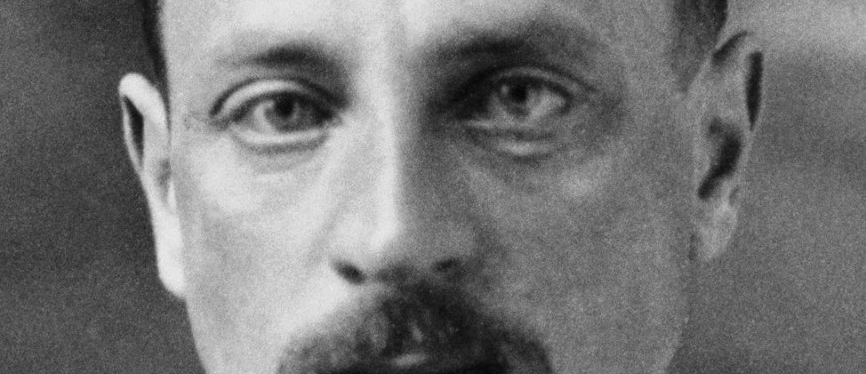
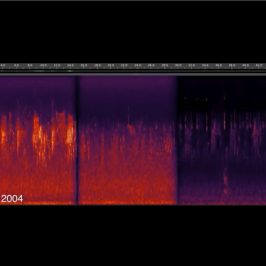
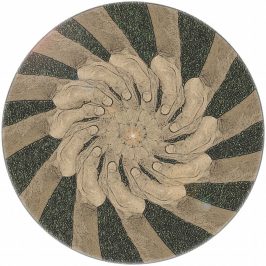

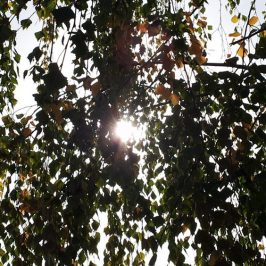
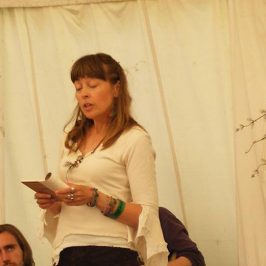

Leave a Reply